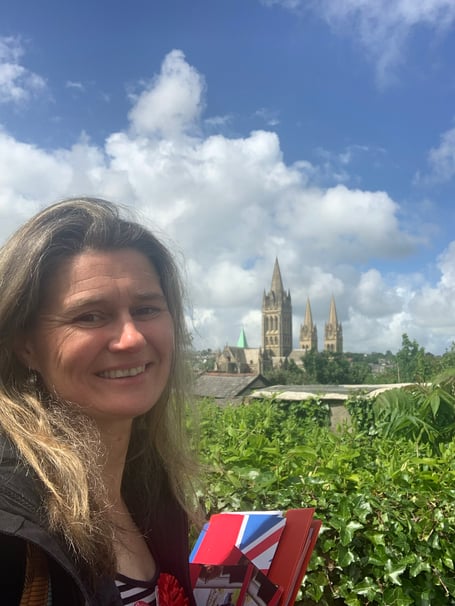THE Community Health and Wellbeing (CHWW) programme is a key part of the neighbourhood health service announced in the Health Secretary's 10-Year Plan for the NHS.
The CHWW programme, piloted in Cornwall since 2023, is a collaboration between the NHS in Cornwall and Isles of Scilly and the voluntary sector, and tackles health inequalities and improves wellbeing for some of the county’s most vulnerable residents. The lead partner, Volunteer Cornwall, supports local charities to employ 60 workers across the duchy who work together with local GP surgeries to deliver care to people’s homes.
CHWW teams can be seen in their community, knocking on doors, and building long-term relationships with residents, to provide trusted advice on health, social and wellbeing. The programme aims to improve individual, family, and community resilience and to prevent problems escalating into big incidents that require hospital visits or A&E. An evaluation of the first year of the programme found that 90 per cent of residents visited by a community health worker saw a significant boost in wellbeing.
And evidence from the borough of Westminster in London, where the scheme has been piloted since 2021, has shown that residents are: 82% more likely to attend a cancer screening, 47% more likely to get vaccinated against major diseases, and 82% more likely to undergo an NHS health check. The scheme is seen as a good start to cut pressure on GP services and hospitals. Home visits in some regions have reduced strain on GP services by 7.3 per cent. Prevention is always so much better than cure and these interventions help deal with problems before they escalate and anyone realises they actually become problems.
That's a massive change and the reason why the Health Secretary is calling for more community health services across the country, especially in rural areas like ours. The 10-Year plan is Labour’s plan to secure the future of the NHS, and importantly for Cornwall, deliver the best healthcare to sparsely populated rural and coastal areas. Community Health Worker teams are already located in areas with historically lower uptake of cancer screenings and vaccinations, and higher levels of long-term health conditions that require frequent access to NHS services.
It’s putting the care where it needs to go. And advocates of the scheme, which started in Brazil, say the benefits go beyond health care and reach into a host of other problems, including depression, suicide, domestic violence, children being absent from school, damp, debt and unpaid bills, housing problems, grief and loneliness, and access to practical support like care, debt advice, memory cafes and classes on preventing falls.
For Cornwall, a region with an ageing population and long travel times to visit a GP, the 10-Year plan will mean more accessible care closer to home, so vulnerable patients won’t have to make lots of lengthy trips to Treliske. People should be able to access care as equals, with no postcode lottery, no matter where they live.





Comments
This article has no comments yet. Be the first to leave a comment.